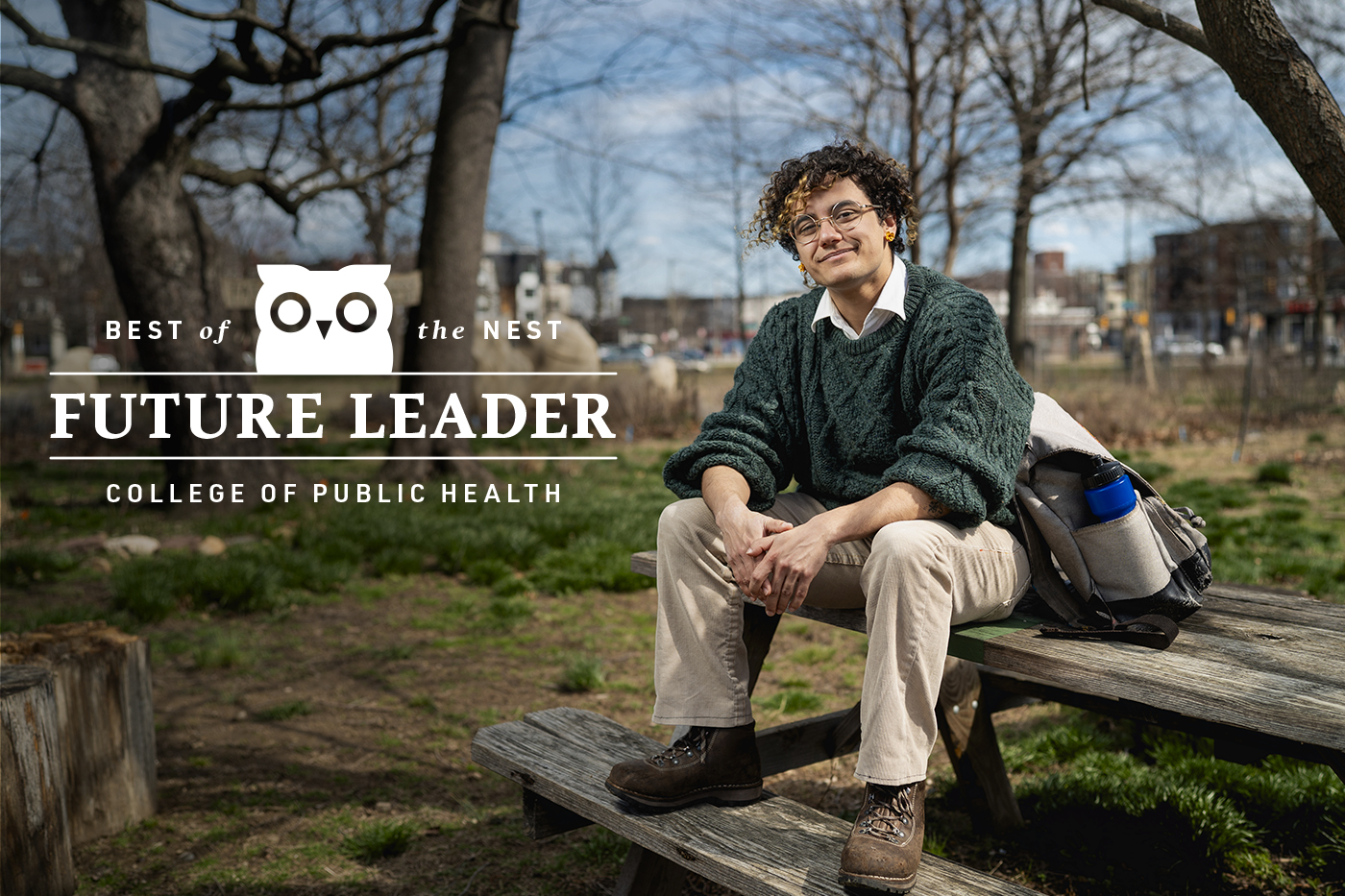Lu Collina looks entirely in their element as they share their story, seated on a log-turned-stool in the Fair Amount Food Forest, a vibrant community garden in Fairmount Park. Their presence here is no coincidence—Lu’s work as a farmers’ market coordinator for the City of Philadelphia’s Department of Public Health has directly contributed to the grants that help sustain spaces like this.
“It’s a beautiful day to be here among nature,” Lu says, then adds with a smile, “As much nature as North Philly can provide.”
While Lu’s clinical passion is harm reduction, they’ve also found an unexpected love in their work with farmers’ markets. Through policy and grant management efforts, they have supported more than 30 markets across the city. “Food access is so important, and I love helping to bring it to Philly communities.”
Originally from Washington, D.C., Lu was drawn to Philadelphia because both of their older siblings attended the University of Pennsylvania, giving them an early introduction to the city. That familiarity led them to Temple University, where they are now pursuing a Bachelor of Science in Public Health at the College of Public Health (CPH).
Set to graduate this spring, Lu is continuing their academic journey through Temple’s “4+1” program, which will allow them to earn a Master of Public Health (MPH) in Social and Behavioral Sciences by 2026. “I started at Temple as a biochemistry major but after exploring different fields soon realized public health was the right fit."
Beyond the classroom, Lu is the vice president of Students for Sensible Drug Policy (SSDP), a student organization they co-founded to focus on harm reduction and drug policy advocacy. “We started SSDP because we noticed a lack of spaces for students to discuss drug policy and substance use in a meaningful way. For students at a campus in North Philadelphia, these issues impact us both as future professionals in public health and as residents of this city. We wanted a place for open dialogue, without the moralistic viewpoint that drugs are innately bad. It’s a great example of the grassroots freedom you have at Temple.”
Lu is deeply committed to harm reduction, emphasizing that it extends beyond substance use. “Sunscreen, seatbelts, bicycle helmets—they’re all harm reduction methods. Yet, when it comes to drugs, we think of it differently. By allowing fear and the history of drugs as a tool for control over marginalized communities to separate substance use from other behaviors, we treat this issue with a judgmental lens, failing ourselves and the communities we’re part of.”
They acknowledge that Temple has taken steps in this area, citing the university’s medical amnesty policy as "really strong" while also noting its limitations. "Because so many students live outside the TUPD patrol zone, the policy doesn’t apply to most off-campus students," Lu explains. "Narcan is available at The Wellness Resource Center, which is a crucial resource in ensuring overdose prevention. We need more of that; I want to help increase access to Narcan for everyone in our community.”
When asked about their future career plans, Lu remains open to multiple possibilities. “I love supporting the farmers’ markets, but I also believe in the power of harm reduction through policymaking and advocacy. The challenge is that this kind of work can lead to burnout. Whatever I do I want to make sure that I am to be fully dedicated to communities I am working with.”
For incoming Temple students, Lu offers this advice: “If you want to get involved in meaningful work, it’s great to start at the campus level. Issues in public health are large in scale but there are things you can do that are within reach. You can collaborate with professors, book meetings with department chairs, or even talk to deans. These are people who you can talk to and directly impact to make a change.”
Through their work in harm reduction, food access, and student advocacy, Lu’s journey is proof that they’ve not only taken advantage of opportunities but have also helped create them for others.

